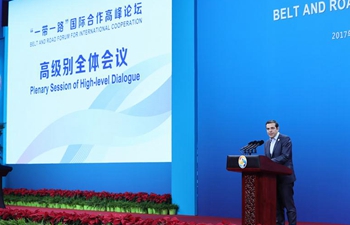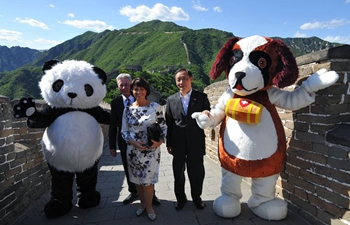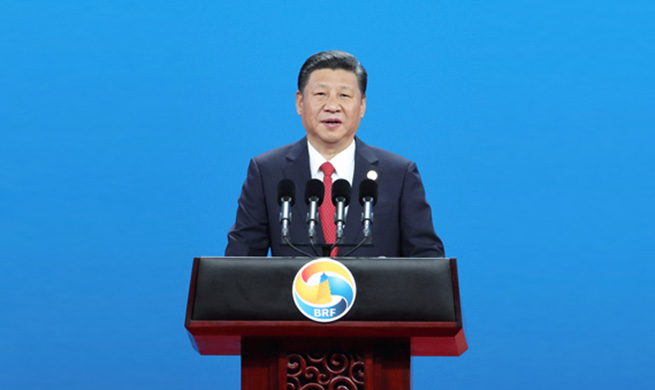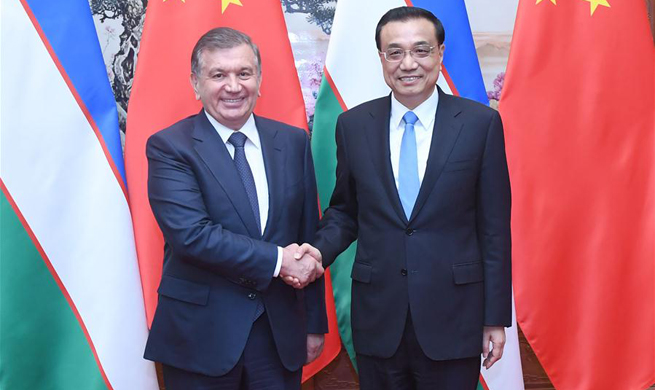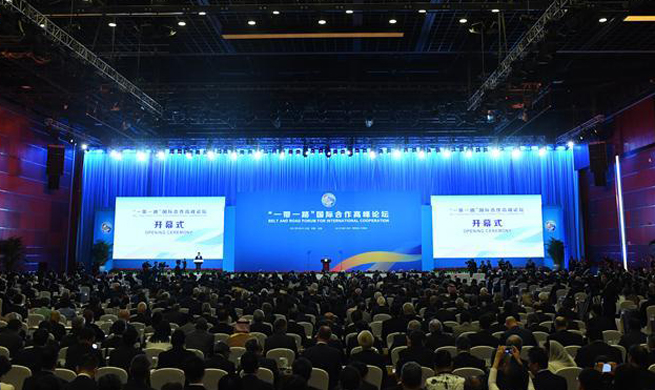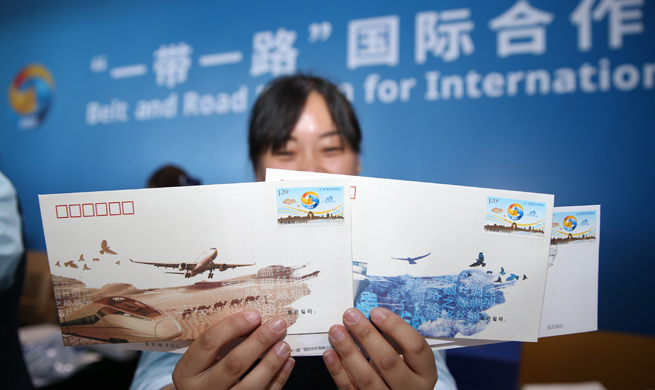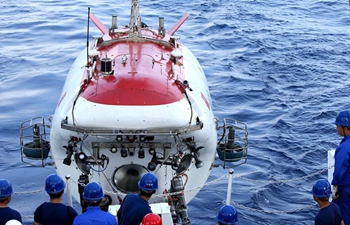BEIJING, May 14 (Xinhua) -- The newest way to send freight from China to Europe involves loading it onto a train, with prices half that of air cargo and cutting two weeks off the journey time by sea.
China-Europe freight trains, passing through 28 cities in 11 European countries, have been gaining steam, as Europe seeks more convenient and affordable ways to tap into the world's largest consumer market.
The rail routes are a key part of the Belt and Road Initiative, proposed by China in 2013, which aims at building a trade and infrastructure network connecting Asia with Europe and Africa along ancient trade routes.
Rail cargo services between China and Europe have become an increasingly popular logistics option for Chinese trade with Europe and freight volume has increased substantially every year.
It took 16 days for 26 tonnes of frozen pork to travel by freight train from the Netherlands to arrive in Chengdu, capital of southwest China's Sichuan Province earlier this month.
"The freight trains slash about 40 days off the travel time compared to shipping, and are about 10,000 yuan (1,450 U.S. dollars) cheaper per tonne air freight," said Shu Changguo, general manager of the importer.
Last year, 460 trains ran between Chengdu, Tilburg in the Netherlands, and Nuremberg, Germany. In the first four months of this year, 91 trains have brought about 150 million dollars worth of European goods to Chengdu.
"The Netherlands is the most important logistical center in Europe, and Chengdu, in China's west, has huge potential, which means great opportunities for European countries," said Koen Sizoo, head of the Netherlands' consulate in neighboring Chongqing Municipality.
Loaded with 32 containers carrying maternity products and soft drinks, the first freight train traveling from Britain to China reached its destination in eastern China's Yiwu in late April.
The China-Britain freight service paves a safe and efficient land trade route, strengthening bilateral trade ties and better serving the Belt and Road Initiative, according to the China Railway Corporation (CRC), operator of the trains.
Multinational companies also want to take a ride on the new train routes.
Peter Tyroller, board member of the Bosch Group in Germany, said the direct freight train service connecting China and Europe enables Bosch to deliver goods faster and cheaper to markets in the Far East.
With good links between its subsidiaries in China and those in other Belt and Road countries like Myanmar, Bosch is able to react quickly and offer its solutions for new projects including new airports, harbors and highways.
Vice Commerce Minister of China Qian Keming said, with vigorous economic growth, improved infrastructure connectivity and alignment between development plans, trade will grow rapidly among Belt and Road countries.
China's trade with countries along the Belt and Road rose 0.5 percent year on year to 6.25 trillion yuan (906.3 billion dollars) in 2016, compared with a 0.9-percent decline in the country's overall foreign trade, official data showed.
As well as trade, Belt and Road countries have easier access to the state-of-the-art technology developed by Chinese companies.
Zhongguancun, known as "China's Silicon Valley," has set up the Belt and Road Industrial Promotion Association as a service platform to boost international cooperation.
Beijing's Haidian District, home to Zhongguancun, has held various events on design and innovation, international technology transfer, energy conservation and bio-pharmaceutical, and helped companies find foreign partners for Belt and Road projects.
Yu Jun, head of the district government, said the efforts aim to benefit more countries along the Belt and Road and bring companies fresh opportunities to gain market access and grow.
Andrew Robb, a former Australian federal minister for trade and investment, said Australia needs Chinese expertise.
"China is at a stage, with not only capital, informed capital, but also expertise they can bring," he said.
Cai Jiming, professor with Tsinghua University, said China's continuous innovations based on national conditions may be a reference for not only other developing economies, but also developed countries.





